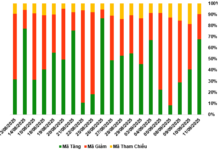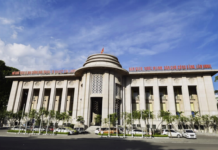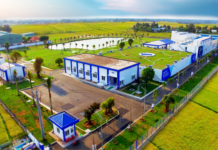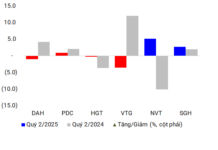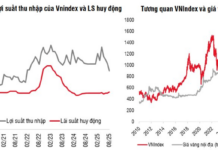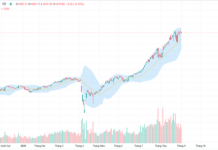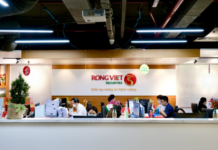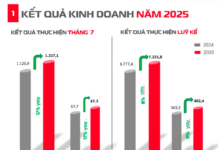
Dr. Majo George, an Indian lecturer at RMIT University Vietnam, offers insight into the country’s growing investment in Vietnam.
Gautam Adani, one of India’s most influential billionaires, has announced plans to invest $2 billion in the Lien Chieu Port project in Da Nang.
“With our financial and technical capabilities, we aim to further engage in various projects in Vietnam. This is a personal commitment from me,” said Gautam Adani, Chairman of the Adani Group, during his meeting with Prime Minister Pham Minh Chinh.
In addition to the Lien Chieu Port project, Adani Group is expected to invest $2.8 billion in the Vinh Tan 3 thermal power project in Binh Thuan Province, as well as participate in the construction of Long Thanh International Airport Phase 2 in Dong Nai Province and Chu Lai Airport in Quang Nam Province.
Opportunities from Indian Investment
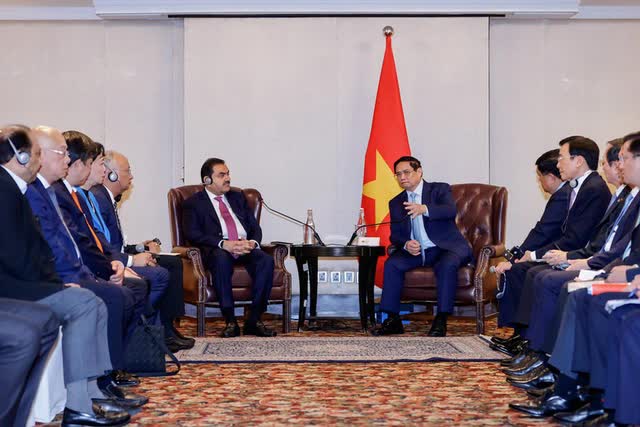
During the meeting with Prime Minister Pham Minh Chinh, the Adani Group’s leaders affirmed their commitment and determination to invest in Vietnam, proposing projects with a total investment of up to $10 billion. Photo: VGP
“Indian corporations are paying close attention to Vietnam and planning to invest billions of US dollars in various sectors. These projects mark a significant step in the ever-growing economic and strategic relationship between the two countries,” said Dr. Majo George, a senior lecturer in Supply Chain Management and Logistics at RMIT University Vietnam.
In another promising development, BDR Pharmaceuticals, a leading Indian pharmaceutical company, aims to establish a production facility for cancer treatment drugs in Vietnam.
The expanding cooperation between India and Vietnam is not a new phenomenon but a continuation of a long historical relationship. The two countries have consistently supported each other in international forums and have pursued a policy of building strong political, economic, and defense relations.
The establishment of a comprehensive strategic partnership in 2016 further strengthened this relationship, promoting collaboration in various fields, including education, science and technology, and defense.
Dr. George, the Indian lecturer, believes that as Vietnam seeks to diversify its economy and reduce its dependence on traditional economic sectors, the expertise and experience of Indian businesses can play a pivotal role in this transformation.
“Indian investment and technology will not only support Vietnam’s infrastructure but also pave the way for knowledge transfer, skills development, and innovation,” said Dr. George.
A Bright Future Ahead
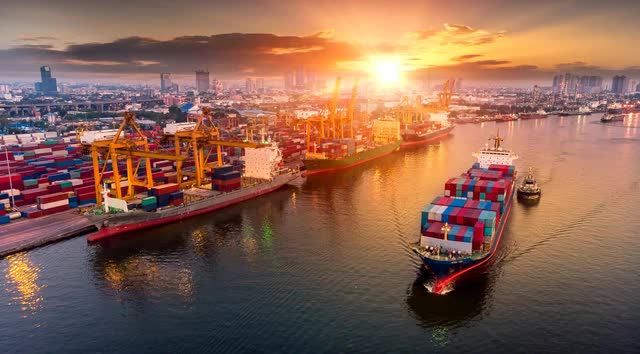
The senior lecturer at RMIT University believes that Vietnamese businesses have a tremendous opportunity to capitalize on current and future investments from India. To effectively engage in the value chains and ecosystems established by Indian enterprises, Vietnamese businesses can consider the following key actions:
– Establish Strategic Partnerships: Vietnamese businesses should proactively engage in joint ventures and strategic alliances with Indian enterprises in various fields, including infrastructure, pharmaceuticals, research and development (R&D), and technology. Such cooperation can facilitate technology transfer, improve operational efficiency, and provide access to new market opportunities.
– Leverage Local Strengths: Domestic enterprises can leverage their production and service strengths to complement Indian investments. This can enhance the overall value chain by providing high-quality, cost-effective products and services, especially in areas where Vietnam has a competitive advantage.
– Explore Export Opportunities: With India’s vast market potential, Vietnamese companies should explore export opportunities, particularly in areas where they have a competitive edge. Establishing distribution networks and partnerships in India can expand Vietnamese businesses’ market reach.
– Invest in Skills Development: Focus on enhancing skills and retraining the workforce to meet the demands of high-tech industries. Businesses can consider investing in training programs and workshops with Indian experts to build local capabilities. This ensures that Vietnamese businesses can meet quality standards and innovate effectively, especially in infrastructure development and pharmaceuticals.
“Through such proactive efforts, Vietnamese businesses can join new value chains, boost infrastructure development, and strengthen economic ties with India,” shared Dr. George.



